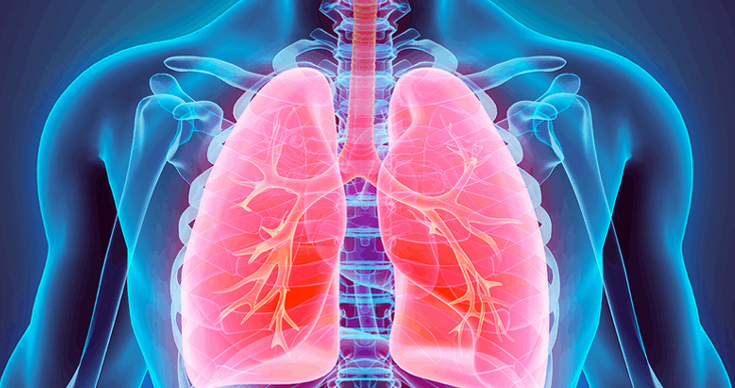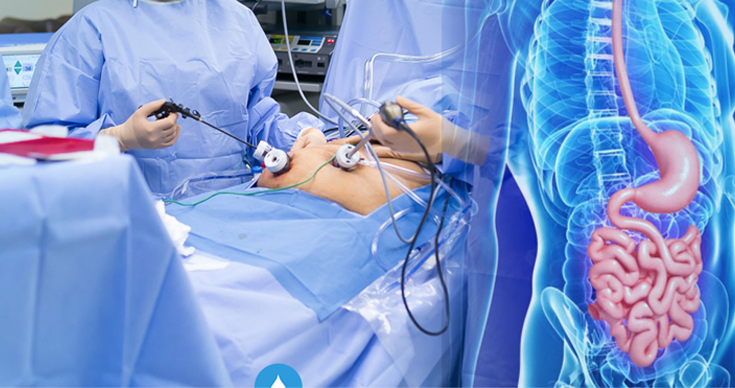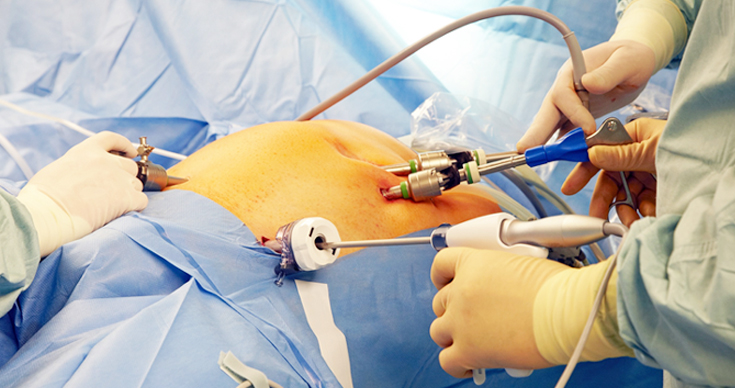The Importance of a Healthy Lifestyle During the Pandemic
If the pandemic of 2020 has taught us anything particularly, it is the importance of having a stable, healthy lifestyle. While the definition of a healthy lifestyle is subject to many facts and interpretations, it should be taken into account that it is both mental and physical. Adopting healthy choices for both your mind and body is crucial and can result in a thriving life at large. The choice is ours to make – eating an apple over the tempting bowl of fried chips to taking a digital detox and picking up a book. Here is a list of things that you should definitely incorporate into your lifestyle for long-term benefits.

1. Hydration is the key
A human body needs enough water to keep the fluid balance in check. Not only that, hydration plays an important role in nutrition as well. We need water to digest the food, get rid of waste and for perspiration. All humans should consume a minimum of 1.5 to 2 litres every day. However, drinks with high sugar level should be avoided.
2. Eat your bowl of fruits and vegetables
As per the USDA’s Dietary Guidelines, it is recommended that adults should eat anywhere from 5 to 13 servings of fruits and vegetables per day as per their age and gender. Five servings of fruits & vegetables are one of the golden rules of nutritional science. This is an excellent way of consuming essential vitamins that contribute to our overall nutrition.
3. All Fats are not bad
It is no news that every balanced diet should include fats – mono unsaturated and poly unsaturated fats. It is important to include healthy fats in our diet from avocados, olive oil, nuts, seeds, etc. to ensure that we consume more healthy than unhealthy fats.
4. Mindful Meal Preparation
Anther tricky aspect of eating healthy is the correct preparation of meal. How well you cook a vegetable ensure the nutrient count – All healthy nutrients can be lost if they are cooked too hot or for too long.The ideal and safe way to go about is by cooking light and thus, eating right. Prepare a diverse meal – the more type your plate has, the more balanced your diet will be.

5. Bid Sugar & Fast Food, Goodbye.
No matter what you have grown up listening to or how much you love your cake, stop consuming sugar. Your body does not need artificial sugar and it is doing more harm to you than any good. Stay wary of what you eat and stay away from the sugar trap. Another evil in the world of a healthy lifestyle is the unhealthy fats that fast food has to offer. Delicious on the tongue and delirious for the body, one should avoid fast-food at all costs.
Making the shift to a healthy lifestyle is not easy but isn’t impossible either. At ILS Hospitals, we advocate a healthy and happy lifestyle. With an underlying mission of ‘Your Health, Our Happiness’, we provide the best of quality healthcare.
Our branch of General Medicine deals with common illnesses, addressing the symptoms, diagnosis, treatment, and recovery from a wide range of diseases involving most of the body parts. To know more, visit www.ilshospitals.com or call +91 90514 60000.
An insight into Lung Cancer, its types and complications
One of the scariest diseases that the world has been fighting is cancer – a disease that destroys the tissues in the body where the abnormal cells divide uncontrollably. Lung cancer is the leading cause of cancer deaths worldwide. It is essentially the growth of deformed cells in the lung. It is riskier in nature as the detection usually happens in the latter stage, i.e. when it reaches the advanced stage. But for an early stage lung cancer, the survival rate is better as compared. Many scientists are working rigorously to examine the risk factors and discovering the protective factors.
It is no news that people who smoke have the greatest risks of lung cancer but that does not account to the fact that non-smokers are free from the risk.
Types of Lung Cancer
Alike all the other diseases, doctors have divided lung cancer into two major types. The two types of lung cancer include small cell lung cancer, exclusively in heavy smokers and non-small cell lung cancer, an umbrella term for several types of lung cancers. While non-small cell lung cancers include squamous cell carcinoma, adenocarcinoma and large cell carcinoma.
The complications caused by lung cancer can be as below:

- Shortness of breath – The cancer grows and blocks the airways that help people breathe, thus, shortness in breath. It also causes fluid to collect around the lungs thus not allowing the expansion during inhalation.
- Blood in cough – One of the rather gory complications are when the cancer causes bleeding in the airway, known as hemoptysis. But treatments are available to control bleeding
- Pleural effusion – When the fluid accumulates in the space that surrounds the affected lung in the chest cavity, is known was pleural effusion, Shortness is breath often results from this. Treatments are available to drain the fluid from your chest and minimise the risk.
- Metastasis – When the cancer spreads to the other parts of body, it is known as metastasis. The early symptoms are pain, nausea and headaches.
When should you visit the doctor?
If the signs are persistent, it is advisable to make an appointment with your doctor. Pulmonology and chest medicine is the medical specialty dealing with detecting and treating illnesses and conditions involving the respiratory tract. Many a time, these patients require intensive medical care and life support.
Pulmonologists address the following conditions
- Asthma
- Rheumatoid Lung Disease
- Severe Lung Infection
- Bronchitis
- Occupational Lung Disease
- Chronic Obstructive Pulmonary Disease (COPD)
- Pulmonary Fibrosis
- Lung Cancer
Pulmonologists perform a range of diagnostic tests to evaluate the nature of the underlying condition and offer treatment accordingly. Some of them are as follows
- Blood Profile Investigation
- Pulmonary Function Tests
- Chest X-ray
- CT Scanning
- Spirometry
- Scintigraphy
- PET (Positron Emission Tomography)
- Sleep Studies
- Bronchoscopy
At ILS Hospitals, the expert pulmonologist offers the best treatment for many pulmonological disorder. ILS Hospitals provides advanced diagnostic services with round the clock doctors and state of the art Operation Theatres. Our renowned surgeons and experienced team of paramedics ensure the complete safety of all our patients. Please visit www.ilshospitals.com/pulmonology-and-chest-medicine/or call us on +91 90514 60000.

Understanding Othropedics & Knee Replacement Surgeries
The human body is perceptive of both internal and external injuries. But quite often than usual, we tend to ignore the minor aches and accept the pain instead of fighting against them. Many people suffer from arthritis or joint pain and it affects the most basic activities like taking a walk, climbing down stairs or sitting up straight. Such issues arise with the breaking down of a protective covering of the tissues causing severe pain, leaving the joints swollen and messing with the everyday functioning. One of the most common ailments is known as arthritis.
Arthritis is an inflammation of the joints that can affect one joint or multiple joints. There are more than 100 different types of arthritis, with different causes and treatment methods. Two of the most common types are osteoarthritis (OA) and rheumatoid arthritis (RA). Though it is more common in the elderly people, even younger people are prone to arthritis, irrespective of their gender. While there are many treatments that can help aid the issue, most surgeons suggest a hip or knee replacement surgery. Let us dive into the details of the same.
Choosing the right surgeon

Trusting the right person for your surgery is extremely essential to the whole process of healing. A number of factors ascertain the success of such surgeries. From identifying the exact problem of the patient to using the ideal implants, your surgeon has to be an expert in this branch. Transparency with the patients is another important aspect that makes a surgeon gain the trust. Walking the patient through the exact details, indulging in an open conversation regarding the technology used for the treatment and clarity on the possible risks involved should be the basic information shared.
Understanding Total Knee Replacement Surgery

A Total Knee Replacement Surgery is a proven surgical procedure that replaces the damaged knee with prosthetics to improve the functioning of the knee substantially. The goal of total knee replacement surgery is to relieve knee pain and increase knee function by resurfacing the bones that meet at the knee joint. The surgeon removes damaged portions of bone at the end of the femur (thigh-bone) and top of the tibia (shin-bone) and replaces them with prosthetic components.
The Promise of a Minimally Invasive Surgery
The great innovation and discoveries of the medical science and technology are constantly working towards improving the lives of every patient. The latest technique and intervention known as computer navigation has improved the success rate of total knee replacement surgeries. Such innovations have enabled the surgeons to reduce and minimise the pain and perform the surgeries with great precision. It has also contributed to the patient’s experience – shorter hospital stays, less rehabilitation time and evidently reduced pain.
The Orthopedics Facility & Faculty at ILS Hospitals
Orthopedics is the domain of medical science that deals with the correction of conditions arising in the musculoskeletal system. An orthopedic specialist employs both surgical and nonsurgical means towards the same. These can include diagnosis of injury/disorder and treatment with exercise, medication, surgery, implants, and rehabilitation, etc.
The surgical reconstruction or replacement of a joint, Arthroplasty, involves Knee Replacement Surgeries – total or partial replacement of damaged knee tissue/bone or both.
Consult our Orthopedics and Joint Replacement department, which addresses issues associated with joint pains and knee replacement surgeries. ILS Hospitals provides advanced diagnostic services with round the clock doctors and state of the art Operation Theatres. Our renowned surgeons and experienced team of paramedics ensure complete safety of all our patients.
To book an appointment or for any other queries, call ILS Care +91 90514 60000 or visit www.ilshospitals.com.
Insomnia or sleep-deprivation? Find out
The essence of a healthy lifestyle revolves around eating right and staying physically active.
But in hindsight, people usually tend to discard a sound sleeping schedule, body’s biological clock. According to the National Sleep Foundation (NSF), sleep is extremely essential for our health and wellbeing. Several individuals tend to not get enough sleep and end up suffering from multiple sleep disorders and most of them, go undiagnosed.
Various factors in our day-to-day lifestyle result in detrimental changes in our body and mind and irregular sleep is one of them.
The two types of Sleep:

REM Sleep or Rapid eye movement sleep is a phase that is characterised by random rapid movement of the eyes, accompanied by low muscle tone throughout the body. It is also marked by the ability to dream vividly. It is the state in which restoration of our brain and body functions occurs, including energy conservation and memory consolidation.
Non–REM sleep is marked by 3 phases of sleep that progressively deepens from light sleep, to restful sleep and ultimately, deep sleep.
Here are the three phases in the sleep cycle and REM phase described.
- Phase 1: The duration between being awake and asleep.
- Phase 2: In this phase, our brain waves slow down, body temperature drops and breathing and heart rate become more regular.
- Phase 3: The final and third phase is the deep sleep – our body muscles are relaxed, blood pressure and breathing rate drops. Sleepwalking, bedwetting and nightmares occur during this phase.
- REM Phase: This phase occurs about 90 minutes after we fall asleep, and is the dreaming stage of sleep. During this phase, the brain becomes more active and the body becomes relaxed and immobilised.
Let’s list down a few important issues to be known when there’s lack of sleep
Affects mental health: Sleep plays an important role in thinking and learning. Due to lack of sleep, a human brain can’t function 24/7 without giving it any rest. This eventually affects your mental health and results in fatigue and frustration.
Affects the immune system tremendously: It is said that sleep helps build up an effective immune system. Thus, lack of sleep can prove to be a barrier for your immune system and might eventually make you feel weak.

Affects the overall functioning: Sleep deprivation can lead to severe health issues including heart disease, high blood pressure, diabetes, irregular heartbeat and more.
Causes headaches: Several sleep disturbances like oversleeping, lack of sleep, or a change in your sleep routine often results in a severe headache, which can lead to other ailments.
How can you avoid Sleep Deprivation?
- Avoid caffeine later than early evening
- Take a power nap to boost your energy
- Follow your proper sleep cycle
- Maintain your room temperature and bed hygiene
- Meditate for 20 minutes before bedtime
- Listen to soft music before bed
- Don’t use electronic gadgets 2 hours before bedtime
- Keep your Cortisol in check
- Sleep on good quality bed accessories
- Say NO to smoking, especially at night
The best way to control sleep deprivation is with the right mindset. If you are facing a sleep disorder, keep a check on your sleeping habits by maintaining a sleep diary. Consult our Neurology department or our Pulmonology department, which addresses issues related to sleep disorders. A pulmonologist treats lung diseases and breathing problems associated with sleeping disorders. In case of any emergency, you can contact or visit ILS Hospitals, a multispeciality hospital, known for its excellent healthcare services.
To book an appointment or for any other queries, call ILS Care +91 9051460000 or visit www.ilshospitals.com
7 Ways to Boost your Immunity
Your health is your biggest asset. In the last few months of 2020, many people have come to this realisation the hard way. Health and hygiene have been the top-most priority of most people this year, owing to the pandemic. A healthy person with a strong immune system can defend his body against disease-spreading microorganisms. Giving your immunity that boost requires a balance in your eating habits, exercise, stress levels and depends on various factors like age, genetics and lifestyle choices. Hospitals in Kolkata, even the multispecialty hospitals have been pointing out the benefits of a strong immunity system.
To give your immunity a boost, it is essential to follow a healthy lifestyle and maintain balance and harmony in your body. Here are certain ways to give your immunity that boost and defend any disease-causing germs and viruses.
- Healthy Diet: Rich in nutrients and antioxidants, a healthy and balanced diet provides your body with the fuel needed to keep it going. Adding more fibre, omega-3 fatty acids, probiotics to your diet can help keep your system healthy and fight diseases.
- Limited intake of Sugar: Added sugar contributes to obesity and too much sugar can cause a spike in blood sugar as well as increase the risk of diabetes. Curbing sugar can lead to weight loss which might reduce the risk of heart disease and type 2 diabetes.
- Adequate Sleep: 6-8 hours of sleep is essential for your body to function well. Poor quality sleep is highly linked to increased risk of sickness. Getting adequate rest strengthens your natural immunity and more sleep helps the immune system to fight sickness.
- Moderate Exercise: Regular, moderate exercise like brisk walking, aerobics or sports can help reduce inflammation and improve your immunity. It aids in weight loss and helps improve your metabolism. It leads to quicker regeneration of immunity cells in the body.
- Proper Hydration: While there is no direct link between hydration and your immunity, preventing dehydration is the goal for better health. Dehydration can cause headaches and ailments in the digestive system, kidney or heart which can make your body susceptible to illness.
- Stress Management: Stress levels and anxiety need to be kept in check for better immunity. Prolonged stress can lead to suppression of the immunity system and can imbalances in the cells. Regular exercise, yoga, journaling, meditation or seeking professional help is advised for relieving stress.
- Maintain Hygiene: Washing of hands frequently, especially before eating or after coming back home, wearing clean clothes, eating properly cooked food, wearing a mask in public and taking precautions to avoid infections is recommended.

People with low immunity are more prone to diseases like pneumonia, bronchitis, meningitis and are at higher risk of contracting diseases from bacteria and other microorganisms, including COVID-19. These few changes in your lifestyle can really improve your health. While they do not guarantee your protection from different diseases, they do help you put up a better fight when your body is exposed to disease-causing microorganisms.
If you face any such issues, don’t delay the treatment and fix your appointment with our Pulmonology and Chest Medicine Department. In case of any emergency, contact or visit ILS Hospitals, a multispecialty hospital, known for its excellent healthcare services. To know more, call ILS Care +91 90514 60000 or visit www.ilshospitals.com.
Gastroenterology
The well-being of a human body is often related to the proper functioning of the digestive system. But modern-day diets and lifestyles often tend to meddle in with the smooth functioning, resulting in various minor and major digestive problems. It is only then the expertise of a gastroenterologist has sought after.

What is Gastroenterology?
Gastroenterology is a branch of medicine that deals with the disorders of the human digestive system. Starting from our mouth to the anus, the gastrointestinal tract, along with the alimentary canal, is responsible for the proper digestion of food. Physicians who specialise in this field are called gastroenterologists.
What are some of the common yet lesser-known facts relating to Gastroenterology?

- Heart burns: Our current lifestyles result in one of the most common diseases stemming from our digestive system and that is gastroenteritis. The symptoms range from stomach cramps and diarrhoea, to nausea and vomiting. What people don’t generally know is that chest pain is also a key symptom of gastroenteritis and is often confused with a heart attack. So, the myth equating chest pain to heart issues is not a safe assumption to make and it is best to consult a gastroenterologist.
- Blood in stool: Another common misconception is that blood in stool is usually the result of a tear in the track. However, this often stems from GERD or Gastroesophageal Reflux Disease, a condition where the acids in the stomach irritate the lining of the food pipe and cause blood to pass through. It is safe to consult any gastroenterologist for the same.
- Smoking & digestion: The most common misconception that people tend to agree to is that smoking helps with digestion. The fact here is that it may help in the movement of the stool but never helps in digestion. On the contrary, smoking causes heartburns, peptic ulcers, liver diseases and also gallbladder stones.
- Overuse of herbal supplements: The whole fad of switching to herbal and dietary supplements is causing people more harm than they know. People take these without weighing in the side effects just because they are natural. In reality, these supplements, if consumed in excess, include vitamins and minerals that can cause liver inflammation, scarring, liver cirrhosis and even liver failure.
ILS Hospitals has state of the art operating theatre, endoscopy suites, and modern types of equipment and modes of treatment for addressing the diseases. With years and years of research, Gastroenterologists provide comprehensive care for patients involving gastrointestinal endoscopic procedures as well as the interpretation of results. The bulk research performed by them translates to more accurate detection of grave diseases like cancer via colonoscopy. Most of the diseases treated by gastroenterologists are manageable, their main goal is to improve overall the quality of life using advanced clinical care. In case of any emergency, contact or visit ILS Hospitals, a multispecialty hospital, known for its excellent healthcare services. To book an appointment or for any other queries, call ILS Care +91 90514 60000 or visit www.ilshospitals.com
Everything You Should Know About Minimally Invasive Surgery or Most commonly known as Key-Hole Surgery/Laparoscopic Surgery
Minimally invasive surgery which is most commonly known as the Key-Hole Surgery or Laparoscopic Surgery, is a specialised and advanced technique for conducting surgeries. This has been a popular technique for gynaecological procedures as well as gallbladder surgery. Laparoscopic surgery is one of the common types of minimally invasive surgeries, conducted by making small incisions, using tiny cameras, small tubes and surgical instruments. Constant innovations in the industry has led to these surgeries being shorter, with a faster recovery time, less invasive and painful along with fewer complications.
Scope of Key-hole Surgery / Minimally Invasive Surgery

Key-hole Surgery / Laparoscopic Surgery has been a popular choice for gynaecological procedures and gallbladder surgery. However, over the years, the scope for this key-hole surgery / minimally invasive surgery has increased to cater to many other surgical procedures. Now there’s scope for laparoscopic surgery for small and large intestinal surgeries, hernia repair, treatment for infertility. It is also used for diagnostic purposes like knowing the stages of cancer, checking for tumours or evaluation of the effectiveness of some treatment.
Advantages of Key-Hole Surgery / Minimally Invasive Surgery
In traditional open surgery, the doctor makes a large cut for visibility of organs and then operates on the patient. In case of minimally invasive surgery, here are some advantages that make it a better choice over traditional surgery:

- The surgeon can limit the number of cuts, the size of the incisions made and is considered much safer than traditional open surger
- The recovery period after a minimally invasive surgery is faster with smaller incisions leading to tiny or negligent scarring
- Not a lot of muscle or skin is opened up or affected, especially in key-hole surgery. The robotic surgeries are done with extreme precision
- The chances of complications also reduce in case of minimally invasive surgery, be it laparoscopic surgery or minimally invasive surgery
Along with the benefits, there is scope for major innovation and betterment of the current procedures, which is being worked on every minute by various surgeons all over the world. Minimally invasive surgery makes it easier for the patient and as well as the doctors and is the best solution to your issues. ILS Hospitals being the pioneers in laparoscopic surgery has been a leading hospital in Kolkata with renowned surgeons and facilities for key-hole surgery or minimally invasive surgery. To consult or know more about minimally invasive surgery, visit www.ilshospitals.com.
Food Habits To Be Followed Post Angioplasty
Your diet after angioplasty needs to be paid extra attention for quick recovery. If you have an angioplasty, you need to make certain changes to your diet and lifestyle.
(Get cardiac emergency care from the best medical emergency centre in Kolkata)
Today, ILS Hospitals, one of the best hospitals in Kolkata and Agartala will tell you what you can and cannot consume after an angioplasty procedure.
Include,
Lots of fruits and vegetables
Now is the perfect time to consume plenty of fruits and vegetables to recover faster. Eat fruit and vegetable salads or preferably boiled and mashed fruits and vegetables after angioplasty to get the ultimate nutrition.
Healthy fluids
Ensure that you drink healthy fluids throughout the day. Apart from plain water, you can drink healthy vegetable and chicken soups, fruits and vegetable juices, and coconut water to receive sufficient hydration.
Whole grains
Consume whole grains, like brown rice, oats, buckwheat, quinoa, barley, and so on.
Lean meat
Instead of red meat, opt for leaner options of meat, like fish, chicken, turkey, etc.
Legumes and lentils
Make sure that your diet post angioplasty contains vital legumes, such as chickpeas, kidney beans, black-eyed peas, soybeans, and lentils.
Nuts and seeds
You should not forget the importance of wholesome nuts and seeds after angioplasty. Eat soaked and peeled almonds, cashews, peanuts, pecans to get the goodness of nuts. Do consume seeds of sunflower, pumpkin, and sesame if possible.
Exclude,
Sugary foods
Avoid sugar and sugary foods, that includes sweets, desserts, and chocolates. If avoiding is not entirely possible then try to reduce its intake.
Fried and fatty foods
Fried and fatty foods need to be strictly avoided post stent procedure. Tell the one who is preparing your food to use less oil in your meals.
Spicy foods
Avoid excessive spices and chillies in your meals as consuming such things can interfere with your medications and hence recovery.
Alcoholic beverages
Alcohol or alcoholic beverages must not be consumed after angioplasty.
For a speedy recovery post angioplasty, follow the above-mentioned things, take plenty of rest, have your medicines on time, and follow up with your cardiologist. If you are searching for a hospital in Kolkata and Agartala for your angioplasty procedure, consider the name of ILS Hospitals. Our hospital units in Kolkata and Agartala are well-equipped with the latest technology, facilities, and expert medical professionals who will guide you throughout the procedure.
ILS Speaks – Healthy Hair, Healthy You
Hair has been called crowning glory as it is symbolic to the person’s health, beauty, and overall personality. A luscious thick mane is always considered healthy and so to achieve that people use a lot of products and provide a lot of TLC to the hair.
Have you ever wondered what your hair is trying to tell you? Just like your nails, your hair has a lot to say about the health of your body. The condition of your hair can hint at serious diseases, like thyroid, anaemia, etc. as well.
In today’s blog, ILS Hospitals, one of the best hospitals in Kolkata and Agartala, will tell you what your hair is trying to tell you about your overall health. So, without any further ado, let’s proceed further.
Dull and lifeless hair
Dull and lifeless hair can happen due to a variety of reasons. You might make your hair dull and lifeless when you undergo chemical treatment, like hair colouring, rebonding, and other heat treatment or when you use harsh chemical-based products at home. From the medical point of view, dull and lifeless hair strictly indicates poor nutrition.
Solution: Eat lots of fruits, vegetables, and meat. Drink plenty of water and avoid harsh chemicals on your hair.
Grey or white hair
Grey or white hair is normal after you turn 35 years. But if you have white hair in your twenties then it is a matter of concern. The hair becomes white due to insufficient melanin, a pigment that gives hair its natural colour. This can happen due to vitamin B deficiency and stress.
Solution: Stay away from stress and eat vitamin B rich foods, such as eggs, fish, chicken, mutton, oysters, milk, whole grains, almonds, broccoli, spinach, bananas, avocados, bananas, and so on.
Thinning hair
Hair thinning or receding hairline occurs due to nutritional deficiencies or thyroid. Hyperthyroidism and hypothyroidism can cause hair loss in men and women. If you wish to know more about thyroid, read this blog: Your Complete Guide On Thyroid
Solution: Consult your medical professional, preferably visit ILS Hospital and get thyroid function tests.
Excessive hair fall
Losing 50-100 strands of hair a day is completely normal but if the hair strands exceed this normal range then it can indicate towards iron deficiency or anaemia.
Solution: Eat foods rich in iron, like chicken, fish, cashews, whole grains, fortified cereals, spinach, legumes, lentils, tofu, raisins, apricots, and so on. Also, get a blood test to check your haemoglobin levels.
Dry hair and scalp
Dry hair and scalp can mean that you are not getting healthy fats in your body. Also, dry hair and scalp can happen due to scalp diseases, like psoriasis.
Solution: Eat healthy fats, like eggs, cheese, avocados, fatty fishes, coconut oil, almonds, cashews, etc.
For other hair-related queries, visit ILS Hospitals in Kolkata and Agartala to consult our professional trichologists.
The Key to a Healthy Heart
The heart is the engine that keeps a body running. It pumps blood to every part of the body and keeps it functioning like a well-oiled machine. It is essential to keep your heart healthy and strong. A healthy lifestyle reduces the chances of cardiovascular diseases and helps your heart work most efficiently. Cardiovascular or heart disease is on the rise in our country with more and more young people suffering from disease owing to the increasing stress and fast-paced lifestyle.
A lot of doctors suggest making certain basic changes in your lifestyle to improve your health and make your heart stronger, especially after a certain age when the risks are much higher. Here are a few things you should always keep in mind:
- Eat Right & Exercise: An active lifestyle along with a healthy diet can do wonders for your heart. Indulge in some activity like walks, playing a sport, dancing or working out in your daily routine. A sedentary life can be harmful to your heart. Eat healthy fats and avoid trans fat along with portion control and add fruits and vegetables to your diet for more fiber and the right dosage of vitamins and minerals.
- Quit Smoking: Smoking is not just bad for your lungs but also can cause irreversible damage to your heart. Smoking is a major cause of coronary heart disease which can lead to heart attack. It is, in fact, considered one of the top controllable risks factors in case of heart disease. Avoiding tobacco can be a great way to take care of your health.

- Choose Stress-Relieving Hobbies: Stress can be one of the biggest reasons for heart diseases. Picking up hobbies like knitting, listening to calming music, watching fun movies or simply walking around greenery can help relieve stress and keep you happy.
- Get Proper Sleep: Those who don’t get enough sleep are at a higher risk of contracting cardiovascular diseases. Getting proper, restful sleep is essential for good health, overall. Sleeping less than the required hours can lead to fluctuations in blood pressure and inflammation.
- Get Regular Check-ups: Go for regular check-ups to ensure your heart is working to its full capacity without any troubles. Keep a constant check on your levels of blood pressure, blood sugar and cholesterol. In case of any issues, go for an angiogram or angiography and further tests to get to the roots of the problem and consult a heart specialist.
It is vital to ensure that you follow a healthy lifestyle and take precautionary measures to avoid cardiovascular issues and other health diseases in the future. However, in case of any symptoms or signs of trouble, it is a necessity to seek medical advice from professionals. ILS Hospitals are one of the leading hospitals in Kolkata for cardiovascular treatment and have an outpatient department in case of emergencies. For regular check-ups or consultations, visit us and stay healthy.
For further details, visit www.ilshospitals.com.




















